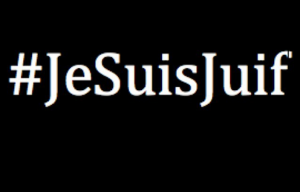“Why, indeed, is it that the Palestinians rejected Israel’s offer for an independent Palestinian state comprised of virtually all of the West Bank, the Gaza Strip, and a capital in East Jerusalem in 2000, in 2001, and then again in 2008? After all, acceptance of any of those peace deals would have resulted not just in an end to the settlement construction that the Palestinians assert is the obstacle to peace, but the evacuation of tens of thousands of Israelis from the West Bank. What inference is a reasonable person to draw from that rejection?”
–Jeff Robbins, “A ‘Very Good Question’ in Mideast Conflict” (Boston Globe)
“Moreover, we were distraught about his implication that so many news sources have anti-Israel tendencies because Israel is in the wrong.”
–Hayley Nagelberg, “Today I Was Asked By CNN If I Am Brain Dead” (The Times of Israel)
“Another opportunity in the Holy Land has been lost. The waste is unconscionable, tragedy indeed.”
–Roger Cohen, “Why Israeli-Palestinian Peace Failed” (The New York Times)
